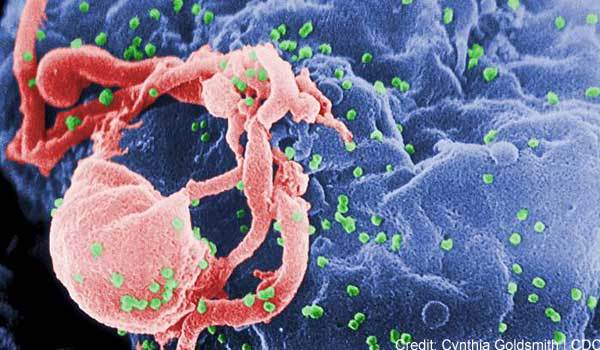HIV Testing Recommended for All Teens and Adults

All teens and adults ages 15 to 65 should be tested for HIV, regardless of their risk of contracting the virus, according to new recommendations from an expert panel.
In addition, all pregnant women should be tested for HIV — even those who are in labor, if they have not previously been tested for the virus during that pregnancy, according to the recommendations, from the U.S. Preventive Services Task Force.
Previously, the task force had recommended HIV screening for adults and teens at increased risk for HIV — such as those who have unprotected sex with multiple partners and men who have had sex with men — as well as pregnant women.
The new guidelines expand the screening recommendations to include teens and adults who are not known to be at increased risk for HIV infection.
The task force based its recommendations on results from recent studies that found that early treatment for HIV (before patients show symptoms) lowers the risk of adverse health outcomes, including death, and reduces the risk of virus transmission during sex.
There are about 1.1 million people in the United States living with HIV infection, and about 20 percent of them don't know they have the disease, according to estimates made by the Centers for Disease Control and Prevention in 2008.
The HIV screening tests, which include a blood test and a saliva test, are highly accurate, and results can be ready quickly.
Get the world’s most fascinating discoveries delivered straight to your inbox.
HIV screening should be voluntary, and before screening, patients should be informed about the implications of a positive or negative test, the task force said. The group agrees with the CDC that HIV screening should be an opt-out screening test — that is, one that is performed unless patients decline.
The task force did not recommend an interval for when patients should return for HIV testing, but said that a reasonable approach would be to screen all teens and adults once to identify those who are HIV-positive, and repeat the screenings for those at increased risk for HIV. It may be reasonable to screen people at very high risk (such as men who have sex with men) yearly. Women should be screened during every pregnancy.
People younger than 15 or older than 65 should be screened only if they are at increased risk of HIV (for instance, if they have a new sexual partner).
The recommendations are published today (April 29) in the journal Annals of Internal Medicine.
This story was provided by MyHealthNewsDaily, a sister site to LiveScience. Follow Rachael Rettner @RachaelRettner. Follow MyHealthNewsDaily @MyHealth_MHND, Facebook & Google+. Originally published on MyHealthNewsDaily.

Rachael is a Live Science contributor, and was a former channel editor and senior writer for Live Science between 2010 and 2022. She has a master's degree in journalism from New York University's Science, Health and Environmental Reporting Program. She also holds a B.S. in molecular biology and an M.S. in biology from the University of California, San Diego. Her work has appeared in Scienceline, The Washington Post and Scientific American.
 Live Science Plus
Live Science Plus





